Horrific Inquiry: THE UNINVITED (2009)
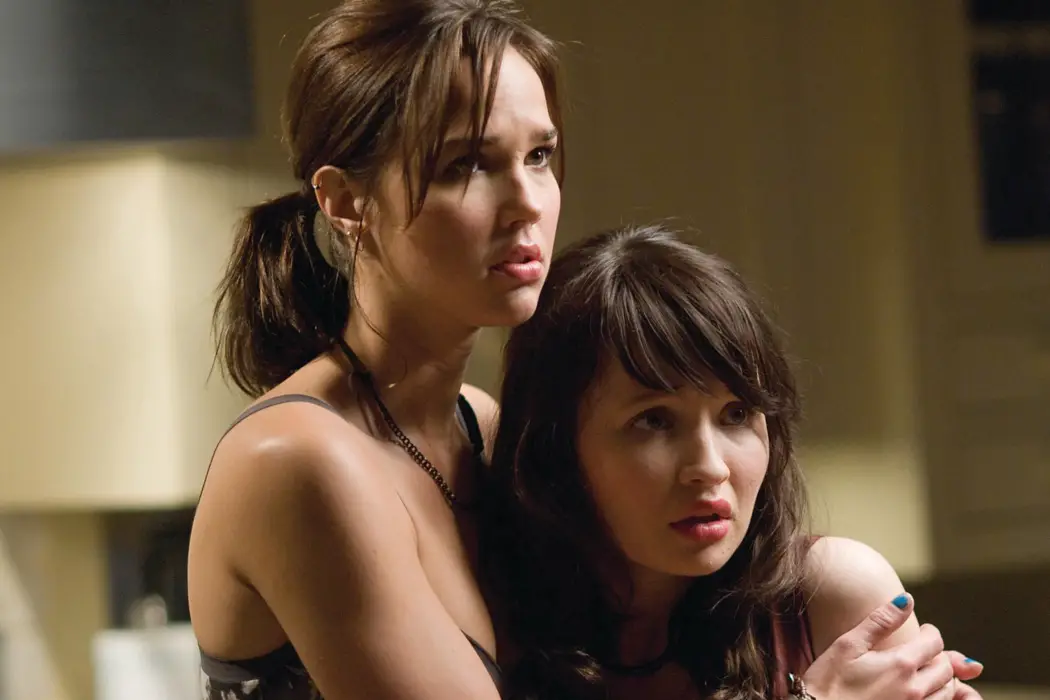
Stephanie Archer is 39 year old film fanatic living in…
Welcome back to the newest, and at times goriest, column here at Film Inquiry: Horrific Inquiry. Twice a month, I will be tackling all things horror, bringing two films back into the spotlight to terrify and frighten once more. And occasionally looking at those that could have pushed the envelope further. Join us as we dive deep into the heart of horror, but warning, there will be spoilers.
Sometimes the best horror films are those that have been overlooked or underrated. A quiet release that piqued interest but may have been left behind by many. The Uninvited, from directors Charles Guard and Thomas Guard (ie. The Guard Brothers) and a remake of the horror 2003 South Korean A Tale of Two Sisters, is one of these films. Too often I have heard recognition, but little interest. And it never ceases to amaze, because honestly, The Uninvited is a film structurally sound, linguistically crafted, and brilliantly executed.
To be honest, this is a film I watched, loved, and forgot about myself. Falling within a sea of releases and Japanese Horror remakes, this film never reached the shoreline of permanence. Yet, it was one that always lingered just out of reach. I recently, for no reason whatsoever, found myself thinking of the film for the first time in years, wondering to myself why if I loved the film so much, had I never returned to it again. With this question in mind, it seemed the appropriate selection for this month’s entry into the Horrific Inquiry. And what a ride the second time around was.
RSVP to this invite
As The Uninvited opens, the ominous music fills your ears, the sounds of fire interlaced within its cords, sparks of lighted ash and flame speckled throughout the screen – it is as ominous as it is tantalizing. Following a brief voiceover, audiences are introduced to Anna (Emily Browning) as she quickly leaves her boyfriend and begins making her way home. It will not take long for audiences to realize we are witnessing a dream that constantly haunts Anna, its surrealist representations a constant mockery of her memory. No clarity and no peace. As the dream ends, we find Anna in the office of her psychiatrist (Dean Paul Gibson), receiving words of encouragement, approval, and release. She is finally really to be sent home.
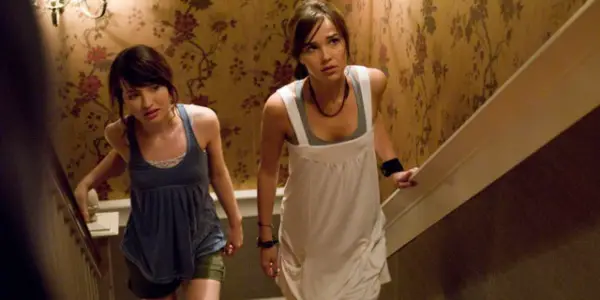
There is ethereal music, from composer Christopher Young (no stranger to the horror genre), that swells as her father (David Strathairn) drives her away from the psychiatric facility, a hopeful yet ominous tone containing an air of caution. From the moment Anna arrives home, The Uninvited leans into the uncertainty of reality and fiction, toying with Anna’s mental stability, especially as the cause of her break is not fully known yet. As the past continues to haunt her, and her mental illnesses are seemingly closing in, suspicion of murder turns to terror as Anna believes she is next.
The Power of Dialogue
It’s hard to talk about The Uninvited without giving literally everything away. So if you have not had a chance to view the film, and I have piqued your interest, see the film before continuing forward. For those who have already had the experience, I encourage you to see the film again as it gives a different viewing opportunity with knowledge at hand.
Watching The Uninvited again, I was more enthralled with its composition and narrative structure. This is a film that plays with its dialogue, its cast not only understanding the assignment but embracing it completely. Almost every line of dialogue has deeply crafted duality that in retrospect, or during future viewings, is in itself wholly entertaining. This unique and mischievous execution begins early on in the psychiatrist’s office, him advising Anna to “finish what she started” – a statement that is referenced again within the film’s final moments, further layering and complicating the film – was she really insane? As her father drives her home following her release, he expresses how Rachel (Elizabeth Banks), her mother’s (Maya Massar) former nurse turned father’s lover, wanted to come but stayed behind so he could have time with his daughter. As Anna responds by saying “you have me all to yourself”, there is a cheeky reference to the film’s final outcome and standing survivors. Not easily realized on first viewing, but devilishly placed and recognized in subsequent ones.
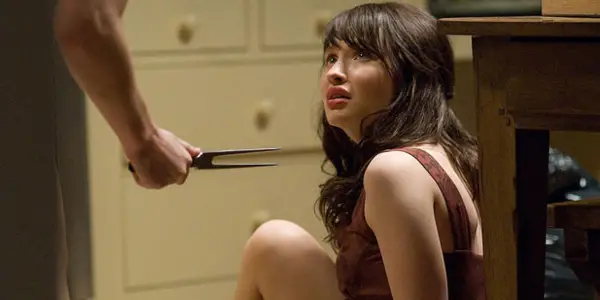
As Anna returns home, she yearning to be reunited with her sister. As she walks through the house becoming reacquainted, she runs into Rachel for the first time, her hesitancy met with an awkward embracement of unity. As her father comes into the picture, Rachel exclaims “you have a house full of women now”, becoming the film’s first spoken challenge against reality and delusion.
As The Uninvited progresses, more characters begin accusing others of “seeing only what you want to see”, pointing fingers at one another, its use deflecting from the true reality that swarms around them. Even in the film’s final moments, as Anna and Alex (Arielle Kebbel) are claiming their father never listens, its potency climaxing as the realization of truth is acquired for the first time. It is powerful, sinister in its truth and falsity, and clever in its execution.
It is truly the dialogue that makes The Uninvited so memorable. While some are more obvious than others, it is interlaced with a multidimensional interpretation that not only speaks to the individual realities we each experience but to the delusional and factual one projected in the film.
Multiple Personalities of the Psyche
Viewers are introduced to the Anna she wishes to project. She is quiet and delicate, yet forceful and impulsive. But it is the delusional representations, both dream and hallucinated, that speak to the inner working of Anna. Each has its representations, and each gives the film a different layered weight to Anna and the presumed perspective of the film. Initially, through her surrealist memory dream state, viewers are introduced to a rather creepy red-headed girl (Lex Burnham) in a trash bag. She makes appearances throughout The Uninvited, ominously luring Anna to the truth. She is reality pushing her closer to the brink of realization and acceptance. While it is not until the film’s final seconds that we learn she is the victim of Mildred Kemp (Heather Doerksen), a home nurse turned murderer, her death is a reality lost in a delusion. Mildred was a resident with Anna at the psychiatric hospital, asking Anna when she first leaves “who will I tell my stories to?” The death of the young girl and the murderess behind it are real and relatable to Anna.
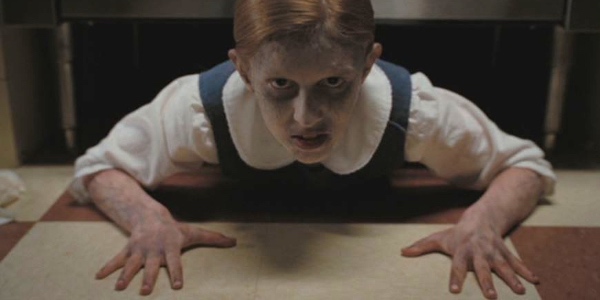
Anna is frequently haunted throughout the film as well, the sound of her former ill mother’s bell breaking the silence of night and darkness, a burnt hand reaching out to her. As the hauntings increase, fingers pointing and “murder” exclaimed, her mother begins to represent the guilt, regret, and tragedy of the deaths she has caused through her impulsivity and carelessness. While Anna on the outside may not remember what happened that fateful night, her subconscious has not forgotten – and never will. Constantly lingering just below the surface, her mother takes form to haunt her for that which she does not remember.
Alex can almost be seen as the true Anna, infused with the memories of her sister. As we find out in the film’s reveal, Alex was killed in the same fire as their mother – a fire started to be Anna. Alex expresses the thoughts that fill Anna’s mind, claiming them as her own. And the filmmakers cleverly work her throughout the film, seemingly interacting with characters in a matter reminiscent of The Sixth Sense, Alex becoming a projection of the mind giving life to the words Anna can not say allowed. She is Anna’s inner thoughts, feelings, and delusions, brought to life in the form of the person closest to her. As the paranoia surrounding Rachel heightens, Anna’s suspicions and fears are further brought to life through Alex.
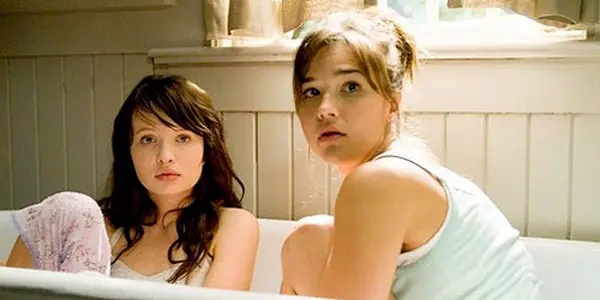
Alex is not only Anna’s inner thoughts and feelings however, but she is also Anna’s will to survive – and the means necessary to do so. From the very beginning of the film, it is established that Anna does not remember the events of that night, small pieces strewn together through symbolism and dreamlike replays. As her father comes to the realization of how far detached Anna has become, he pushes her to know what she has done, confused as she exclaims the pronoun “we” and talks about what Alex had to do. As his desperation leads up to the reveal of Alex’s death, the delusion of Alex beside her screams louder to ignore him, that what he is saying is not true. To survive the tragedy and the guilt of her actions, Anna forgot her sister had died, continuing the delusion that she was still alive. She went to the psychiatric hospital following an attempted suicide, and a life without Alex was not one that she would be ready to live. She had to forget to survive. And she had to maintain the delusion even outside of the hospital to “finish what she started”.
Conclusion: The Uninvited
The Uninvited‘s twist is revealed and accepted in a harsh light of truth, an outdoor light revealing the true identity of the killer, coupled with the sound effects of a slicing knife, untethering Anna from the truth she has desperately clung to. As the film ends and the credits roll, viewers will find they can not help but acknowledge not only the craftsmanship but the performances too that played with the film’s duality and balance of reality and fiction. Elizabeth Banks, Emily Browning, and Arielle Kebbel shine balancing the tension with the questionable. Constantly pushing viewers to believe one side, while toying with the possibility of another. Yes, can elements of this film be predicted? Sure. But it doesn’t take away from the quality, experience, and entertainment The Uninvited promises to its audience.
Have you seen The Uninvited? What are your thoughts? Let us know in the comments below!
Watch The Uninvited
Does content like this matter to you?
Become a Member and support film journalism. Unlock access to all of Film Inquiry`s great articles. Join a community of like-minded readers who are passionate about cinema - get access to our private members Network, give back to independent filmmakers, and more.












